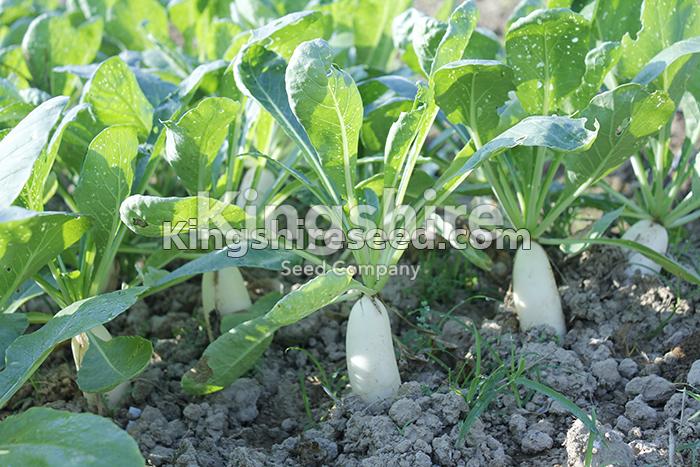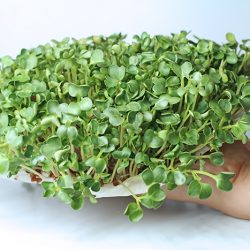Daikon (Raphanus sativus) aka: winter radish, Japanese Radish, Chinese Radish, mooli, moolah, lo-bok, labanos, rabu, phakkat-hua, củ cải trắng, is a large white tube shaped vegetable with a green leafy top.
Health Benefits of Daikon:
Increased Immune Function
Protection Against Heart Disease
Slowing Aging
DNA Repair and Protection
Alleviation of Cardiovascular Disease
Alleviation of Hypertension (High Blood Pressure)
Alzheimer’s Protection
Osteoporosis Protection
Stroke Prevention
*Some of these health benefits are due to the nutrients highly concentrated in Daikon, and may not necessarily be related to Daikon.
Natural vitamins, minerals, and nutrients found in Daikon: Vitamin B9 (Folate, Folic Acid) | Vitamin C | Dietary Fiber | Potassium | Copper |
How to choose Daikon: Look for firm roots with no signs of wilting, if the green tops are still attached try to make sure they are not wilted.
How to store Daikon: Cut the top off the Daikon to help keep moisture in the roots, store the Daikon in a plastic bag in the fridge and they should last for up to two weeks if not more. A wet paper towel can also be placed in the bag to help maintain humidity and keep the roots from wilting.
Climate and origin: Daikon is thought to have originated in the Mediterranean, and later spread to Asia. Daikon is a winter vegetable that is able to tolerate cold temperatures.
Taste: Daikon has a slightly sharp taste with a crisp texture that softens during cooking.
Miscellaneous information: The word Daikon literally means large (dai) root (kon).
 English
English
 German
German
 French
French





